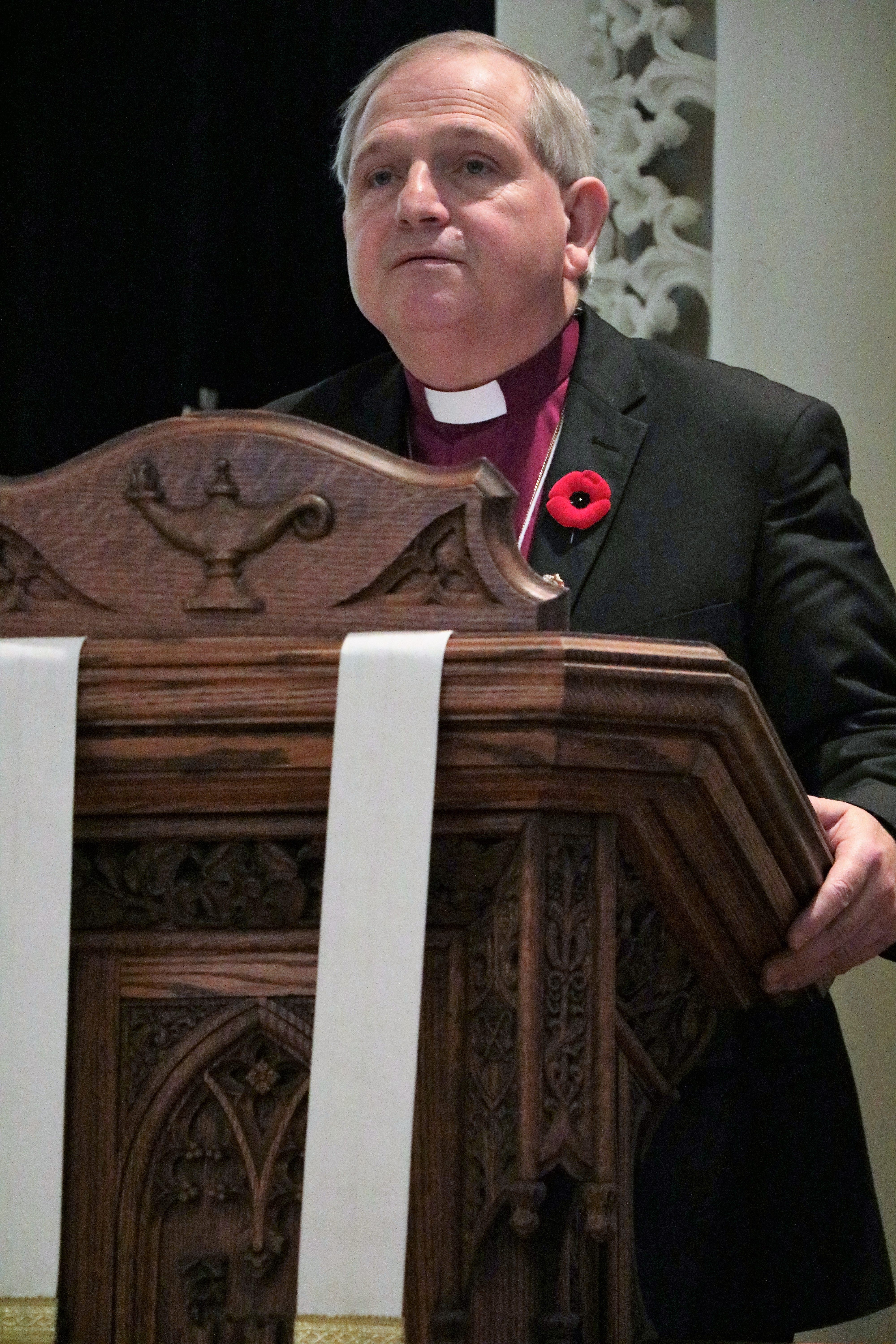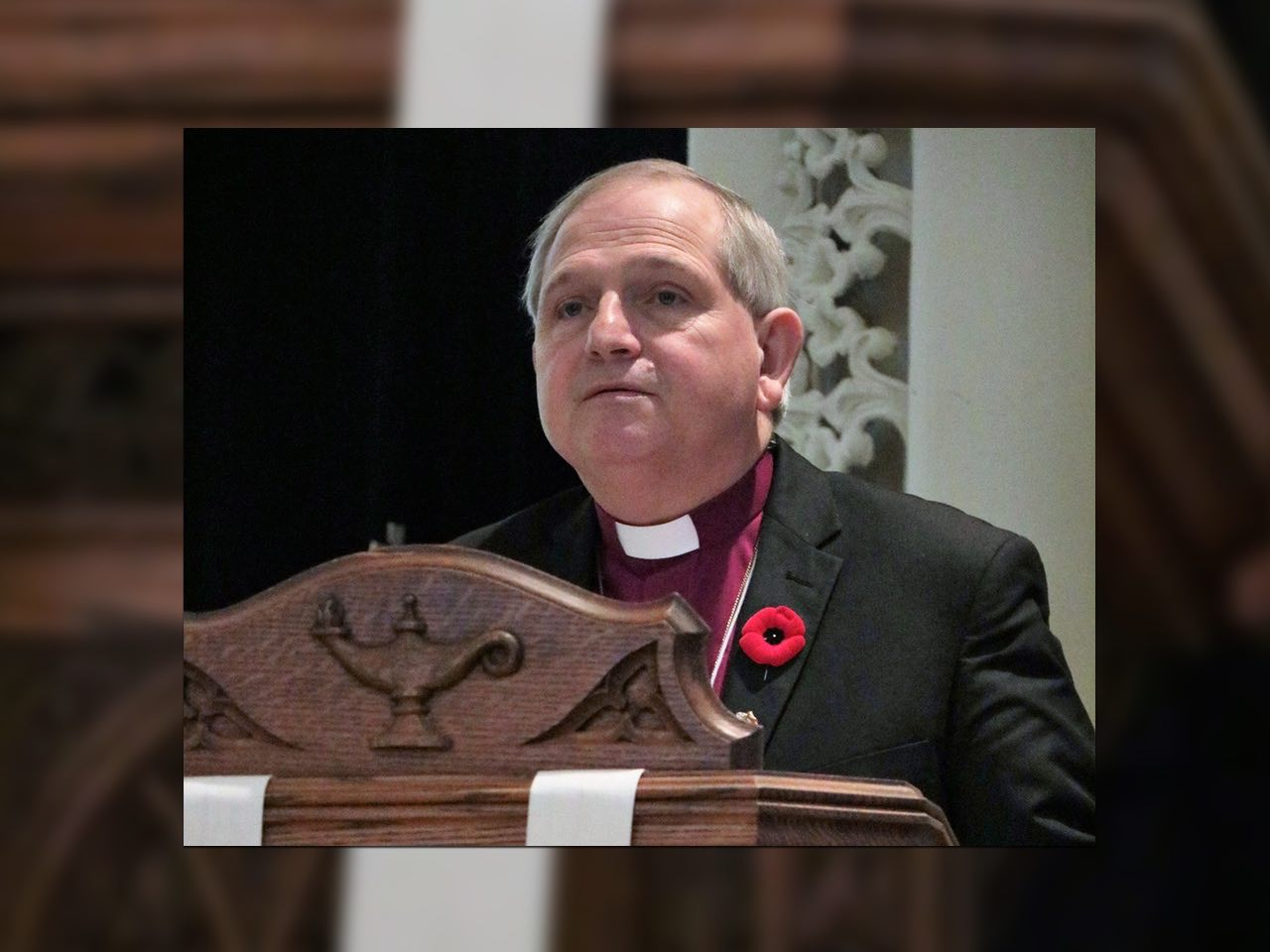Editor’s note: During the General Synod report at the 142nd Niagara Synod, Bishop Michael spoke about the process he followed in approving same gender marriages in Niagara Diocese (See Niagara Anglican September 2016). We publish his remarks here because it is important for us all to share.
Bishop Michael said …

The three years leading up to this year’s General Synod were a journey for many in the church and for me in particular as the Bishop of Niagara. It involved a great deal of work in terms of developing and building upon relationships:
- relationships with the members of the LGBTQ2 community … many of them, our fellow parishioners, clergy and leaders, as well as friends, children and grandchildren;
- relationships with my colleagues in the House of Bishops and our Primate;
- relationships with our international partners;
- relationships with Ecumenical partners as well.
As the General Synod approached I was aware that there was a strong possibility that the required majority would not be achieved in all three Houses, and while I continued to work at building relationships I also knew that I would need to decide what, if any, action or statement I would make in the wake of a “no” vote.
After long hours of prayer, consultation and soul-searching, I came to the decision that I could not allow such a vote to be the final word on this matter for the next nine years. (It would be nine years before two more Synods could give the required assent.) I was also encouraged by the released opinion of the National Chancellor and supported by our own Chancellor that the present Marriage Canon, Canon 21, does not prevent a bishop from exercising his or her authority as chief liturgical officer and chief pastor to give permission for all persons who are duly qualified by civil law to enter into marriage, and to have that marriage solemnized in the churches of his or her diocese.
I also came to the conclusion that in the event of a “no” vote I would no longer be able to stand before the members of the LGBTQ2 community as a senior leader in this church or to stand before the people of the Diocese of Niagara as your bishop without taking a stand.
Bill Mous is our Communications Director, and as is the case with all our written and verbal communication at Synod office, we are very intentional about the ways in which we proclaim the gospel message to our members and the wider society. Bill and I, and others with whom we consulted, worked together to be prepared to speak decisively and quickly when the vote was taken. In the wake of the “no” vote, I therefore issued a statement that I would be giving my permission for the celebration of marriages for same gendered couples in the Diocese of Niagara on the pastoral grounds provided for in the Canon.
It is a decision that I believe is grounded in our proclamation of the gospel and our witness to the kingdom of God. It is a decision that comes with the integrity that has been won over decades of work undertaken by the Synod of the diocese and by our bishops, clergy and lay leaders.
Having said that, I also know that not everyone in the diocese agrees with the actions I have taken and I am more than willing to make time to speak to and listen to anyone who would like to talk to me further about this matter.

Disability Theology and it’s Promise for our Church